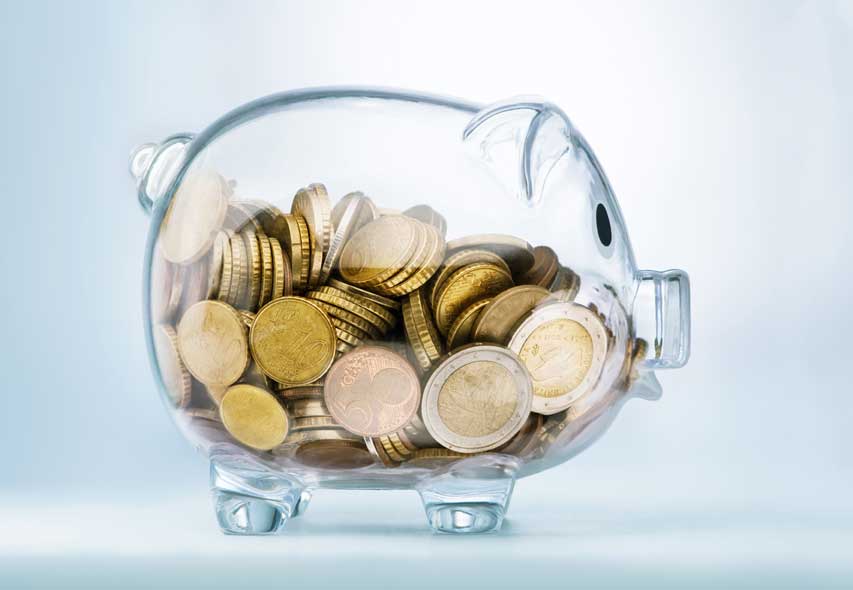The questions everyone needs to ask themselves each week to ensure they're saving enough money.
There are simple ways in which you can save money all year round if you put a little extra thought into your budgeting.
From asking yourself whether you can buy something second-hand to checking to if you went to the gym that week, there are lots of different ways that you can keep on top of your money.
Founder of budgeting tool Squirrel, Mutaz Qubbaj, and founder of Credit-Improver.co.uk, Tom Eyre, came up with eight questions every person should ask themselves weekly to ensure you're always saving - and never splurging.
1. How much have I got to spend?
Mutaz Qubbaj says to set a target and stick to it. A rule of thumb is to divide your weekly income as follows: 50% to living expenses, 20% to savings, 30% to spend.
This may be an old school solution in a world where contactless payments are fast becoming the norm, but only carrying and spending the cash you have allows you take notice of where and how you're spending your money.
2. Do I really need to buy this new?
Sometimes, buying secondhand can mean substantial savings. Take a used car, for instance. As soon as you put the key in the ignition of a brand new motor, you lose up to 20% of its value just driving it off the forecourt.
Hunt around for the same model with a low mileage from a reputable dealer.
3. Is there a discount code for this shop?
Before shopping online or in store, get into the habit of doing a quick scan on your phone for a discount or promotional code.
If you're a repeat customer, you may find that signing up to a store's newsletter will result in regular discounts or free delivery.
4. Did I go to the gym this week?
If you're a fully paid-up member of a gym, and you haven't worked out once this week then cancel your membership and get familiar with your local park instead.
For inspiration download a free fitness app or have a look on YouTube which is a goldmine for workout videos.
5. If I buy this on the cheap, will it be a false economy?
Tom Eyre knows we all love a bargain, but there are certain things – like furniture, electronics and white goods – where opting for the cheapest model you can find could be more costly in the long term.
If the seller gives you the option to buy a higher-quality item with interest-free credit and spread the cost, this is worth considering.
Or you can do the same by purchasing the item via a credit card with 0% APR and paying it back monthly. Just make sure you'll be able to pay back the full amount before the interest rate on the credit card increases.
6. Can I really afford this?
They say you should never go grocery shopping on an empty stomach. Similarly, make a mental note never to buy anything on impulse.
Planning big-ticket purchases well in advance will help you to save money, not least because you'll be able to shop around, and read online reviews to make sure you've getting value for money.
7. What is my unsecured debt?
Simply by adding together all your outstanding balances for credit cards and short-term loans, you can put a figure on your unsecured debt - so you know exactly where your finances stand at any given moment.
But a word of warning: while a history of managing credit will improve your credit score, it's a good idea to keep your debt as low as possible, or you'll look like a credit risk. Therefore, don't use too much of your available credit limit – it's best to use around 25-30%.
8. What can I do without this week to save £3 a day?
Squirrelling away just £3 a day, roughly the price of a coffee, would leave you with savings of £1,095 at the end of the year for a rainy day fund – and more than enough to cover Christmas 2017.







